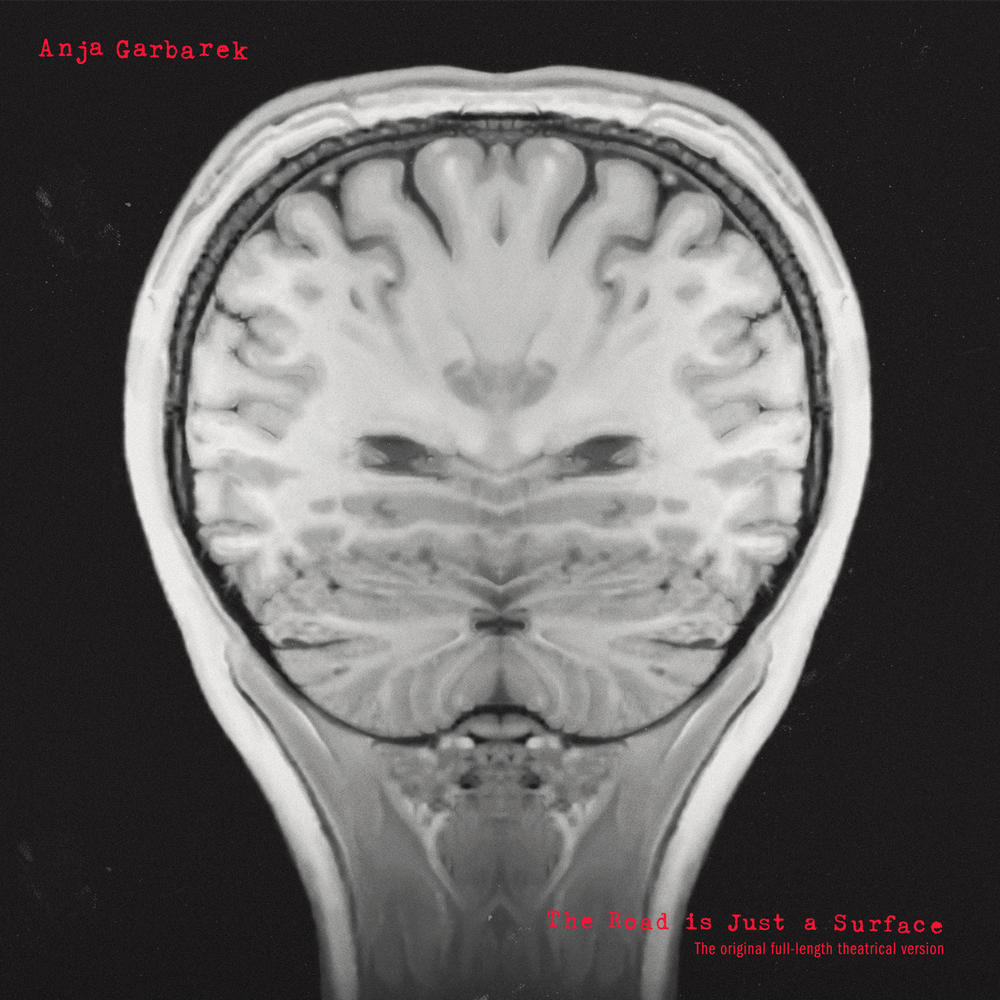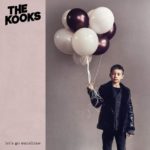“Extraordinarily out of the ordinary”. Uncategorizable, immersive, intense, conceptually detailed and a rare measured balance of purposeful weirdness that’s not overdone. It’s been a 13 year wait for a new Anja Garbarek record since 2005’s dramatic-coloured Briefly Shaking and the soundtrack to Luc Besson’s Angel-A film but the always imaginative Norwegian artist has rewarded her patient fans with an album that has the trademark unpredictable mentality of her earlier work (much of it is similar to the construction of 1996’s experimental album Balloon Mood) while also being a fresh, wonderful chapter in her catalogue.
Like fellow Scandinavians Efterklang in November 2016 with their Danish opera Leaves: The Color of Falling, Garbarek’s The Road Is Just A Surface was originally written as a theatrical piece of performance art, Oslo and Bergen being the locations for witnessing the exclusive shows instead of Copenhagen. Although you can view a clip of the effectively-lit spectacle on FestspilleneiBergen’s YouTube page, listening to the full theatrical version of the record on headphones is adequate enough to feel part of the spectacular experience.
This is because among the cello, scientific fiction synths, horror piano and intricately placed percussion there are plenty of noises used that help paint the cinematography of a well-guided scientific facility: from noisy buttons, to alarms to automatic door sounds. While the use of repetition on words on the album indicating a mental patient’s behaviour – including the recurrence of the words: “this is the radio, this is the ashtray, this is the TV” on ‘Bob’s Song.’ – also help the reflect the story’s environment.
The Road Is Just A Surface (TRIJAS) is better than Efterklang’s aforementioned Leaves Opera as a stand-alone record because despite both being atmospheric and arty to the max, Garbarek’s pieces of music mix the odd characteristics with memorable melodies; it’s fascinating throughout without gaps needed to be filled with seeing the stage imagery and while Efterklang ambitiously tried to capture the dark side of Autumn in an unusual way, TRIJAS has a much more focused and easier to follow storyline. It follows a man named Bob who’s losing his mind, whilst doctors around him study his psychological breakdown.
Earlier this year, Los Angeles indie folk group Lord Huron released the brilliant Vide Noir also about a paranoid individual going insane, however while Ben Schneider’s character was a first person account with an explanation for his madness – desperation whilst searching for his lover and a fortune-teller’s spell – Anja Garbarek’s protagonist Bob isn’t speaking for himself most of time and the cause for his mental state remains a mystery that’s trying to be solved by white lab coated observers. The album’s cover artwork perfectly encapsulates this idea of mental analysis techniques. It’s a brain scan that also looks like an animal’s face if looking at from a Rorschach test perspective.
TRIJAS’s lyrics analyse the state of Bob’s consciousness in four ways: 1) The scientists ask Bob direct questions 2) The scientists ask his mother about Bob’s personality history (on ‘Bob’s song’) 3) Garbarek acts as a narrator listing Bob’s actions (from his serial killer intentions and negative upbringing on ‘Lazy Predator’) and his loss of cognitive abilities (‘Heavy Forms’) 4) and most rarely, there’s the point of view of Bob.
The first way is at the beginning at the record with the eerie ‘Questions’ sounding like Rick Deckard interviewing Rachel in Blade Runner, the doctor asks Bill: “Are you feeling sad at all. Right now? Do you feel sad? Are you angry at anybody? Do you feel that anybody is out to harm you?” When the doctors ask him a similar condescending query on ‘Skilful Talker’, Bob replies in an upset and confused manner (“That’s a stupid question. I don’t know how to answer.”) that’s either evidence of his self-made hysteria or this is hospital is not what it seems to be.
The second hypothesis of this place being dangerous is backed by the use of police siren sounds on ‘In Between’ (suggesting something illegal?), the comment about the abusing treatment of patients on ‘Never Both’, the worrying line “where did his body go? He really needs to know” on the Imogen Heap-tinged ‘Confessional Memoirs’ and his desperation to escape on ‘The Witness’ and ‘The Will To Walk’. His escape plan does become a reality- as suggested by his heavy breathing and running sounds – on the album’s wildest track ‘Constant Clatter.’
At the end of the album, Bob confesses “I don’t know what to think now”. Perhaps also the thoughts of a listener after the conclusion of The Road Is Just A Surface, a unique and rewarding one-of-a-kind release that’s hard to define as a genre or experience.




